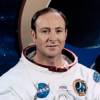Edgar Mitchell

Edgar Mitchell
Edgar Dean "Ed" Mitchellwas an American naval officer and aviator, test pilot, aeronautical engineer, ufologist and NASA astronaut. As the Lunar Module Pilot of Apollo 14, he spent nine hours working on the lunar surface in the Fra Mauro Highlands region, making him the sixth person to walk on the Moon...
NationalityAmerican
ProfessionAstronaut
Date of Birth17 September 1930
CityHereford, TX
CountryUnited States of America
home space long
You get out there in space and say to yourself: that's home. That's the only home we have, and the only one we're going to have for a long time
thinking space giving
It's been written about as "the overview effect." All I can give you is my perspective, but most all of the people who have been in space start to see the world without boundaries. You start to think about how we can keep doing these things we're doing that are destructive of the environment and destructive of the planet. It causes you to start to think things in a quite different way than we had before.
views space earth
My view of our planet was a glimpse of divinity.
moon space earth
We went to the Moon as technicians; we returned as humanitarians.
moon space earth
When I went to the moon I was a pragmatic test pilot. But when I saw the planet Earth floating in the vastness of space the presence of divinity became almost palpable and I knew that life in the universe was not just an accident.
thinking space resources
It's rather clear that we've got to do something differently â€" and going into space and learning to utilize these resources, to think differently about ourselves, is vital right now.
burn capable flight future nations planet sometime space
We need a community of nations capable of space flight because we all have to be off this planet sometime in the future. Our sun is going to burn out eventually, and we are not in a sustainable situation.
aircraft aviation behind certainly coming humans october plans realized robot south spacecraft though
At the end of October 4 in 1957, when I was coming back from sea duty in the South Pacific, Sputnik went up. I realized that humans would be right behind robot aircraft or spacecraft even though I really had no plans of being in aviation or a professional aviator and certainly not in the military.
christian islam opinion
In my opinion, fundamentalist Christians are just as bad as fundamentalist Islam and, at the very core, neither religion is like that.
moon thinking perspective
Another way to think of this is there are now 6.8 billion people on this planet, and half of them weren't even born when we went to the moon, and so they don't have the perspective.
reality emotional people
We create our own reality because of our inner emotional - our subconscious - reality draws us into those situations from which we learn. We experience it as strange things happening to us (and) we meet the people in our lives that we need to learn from. And so we create these circumstances at a very deep metaphysical and subconscious level.
journey true-joy profound
Dr. Lipsenthal is a profound explorer of our inner and outer worlds. Enjoy Every Sandwich will help you heal your fear of death and embrace the true joy of life's extraordinary journey.
service-culture care inspirational-customer-service
If we don't take care of our customers, someone else will.
believe information belief
It’s been very well demonstrated that our belief system effects how we behave and how we perform. . . It also effects our lifestyle, so that if we don’t believe that we can help ourselves, we probably cannot. If we don’t believe that positive information is useful to our health and well being, it probably won’t be.